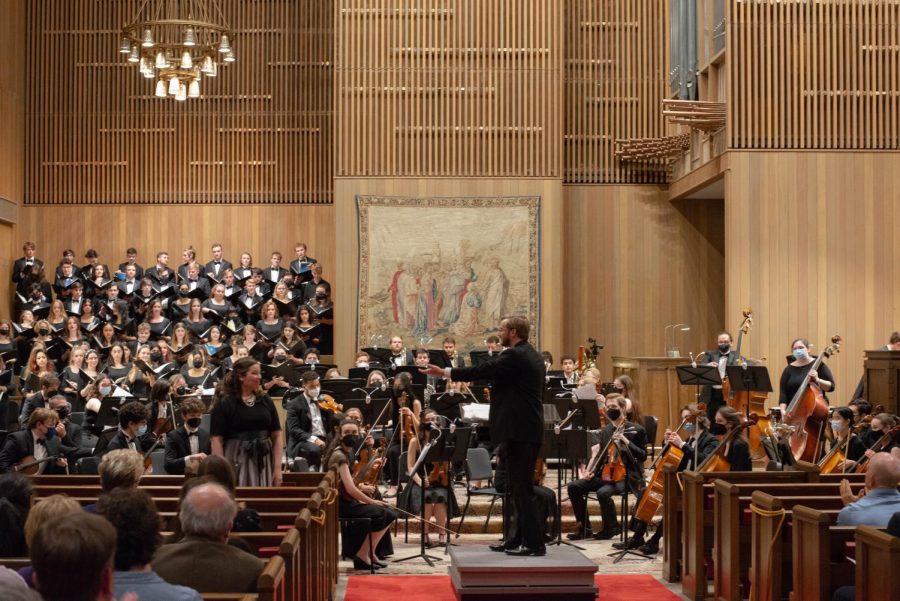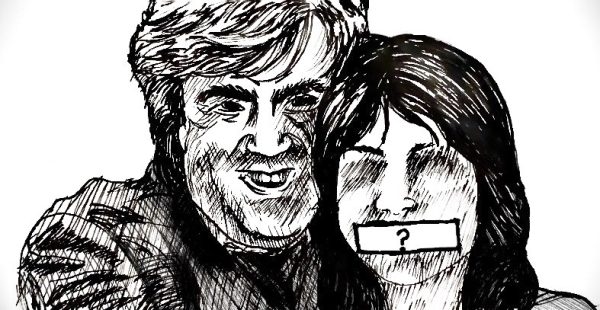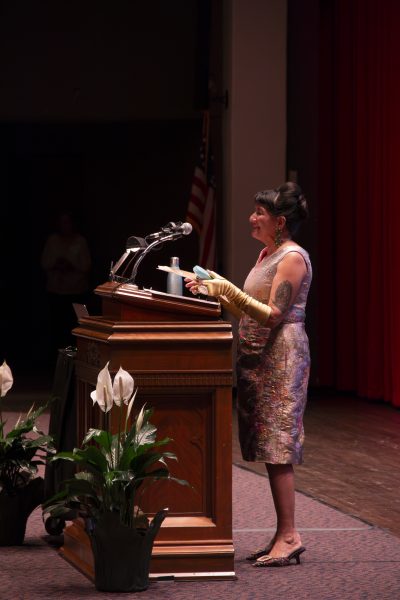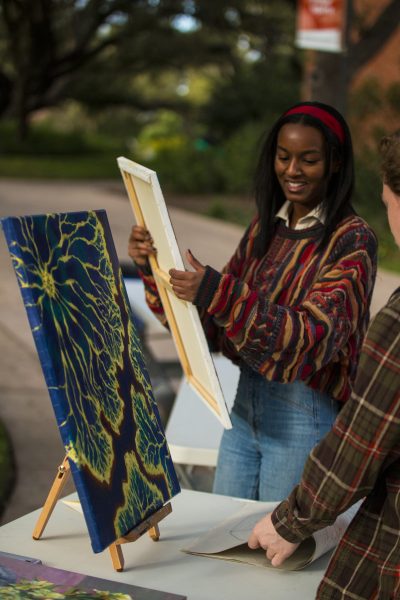Trinity Choral Union reflects on mourning, remembrance, hope
Musicians perform together without mandatory masks for the first time in over two years
Trinity University mixed choirs, orchestra, and faculty soloists performing Joseph Kneer’s “Exaudi.”
Following Trinity University’s updated mask policy, musicians in the Trinity University Orchestra, along with singers in the mixed Chamber Choir and Trinity Choir, performed alongside each other in Parker Chapel on Saturday, March 19 at 7:30 p.m. This was the first time in over two years that the Trinity Choral Union performed together without mandatory masks.
The performance included a 55-minute rendition of Mozart’s “Requiem” following the premiere of a new piece by Joseph Kneer, conductor and assistant professor of music, titled “Exaudi.” “Exaudi,” written specifically for this concert, features both the choir and orchestra, as well as a soprano soloist. Lydia Beasley Kneer, voice professor in the music department, performed the soprano solo in “Exaudi.”
Opening the concert, the eight-minute-long piece incorporates text included in the opening introit of Mozart’s “Requiem”, connecting the two pieces together. Kneer said that it took him about three weeks to compose “Exaudi,” which includes parts for all of the student musicians in the full orchestra, as “Requiem” excludes a few of the instruments.
Kneer spoke about his motivations and intentions for writing “Exaudi.”
“I had an impetus for expressing what many of us are feeling. There are cries to hear the prayers, challenges and difficulties that we are facing. There is the human expression of pain and sadness and grief in the music. There is also some hope,” Kneer said.
Following “Exaudi,” Mozart’s Requiem, dramatically played in D minor, touches on themes of mourning and remembrance, as it is traditionally performed at Catholic Mass for the repose of the souls of the dead. The Requiem performance featured three music department faculty soloists, soprano Lydia Beasley Kneer, mezzo-soprano Jacquelyn Matava and bass Chia-Wei Lee, as well as, guest tenor Steven Brennfleck.
Emily Averyt, a junior violin performance major and concertmaster, said that the orchestra has been working on the Requiem since early February. Averyt said that Mozart’s Requiem was written towards the end of his life, so the piece is darker in nature and incorporates a feeling of impending passing, as Mozart died before the piece was completed. The performance featured the classical ending to Mozart’s Requiem, written by Franz Süssmayr, one of his students.
Kneer and Gary Seighman, director of choral activities and associate professor of music, waited until the end of spring break to announce their decision regarding the University’s updated mask policy. Olivia Wehrung, a senior music education major and Chamber Choir member, said that it was decided that masks would be optional for singers and orchestra players moving forward. She also said that the change in the mask policy has changed the sound produced by the choirs since masked and unmasked singers have different acoustics. At the performance, the number of people wearing masks versus not wearing masks was equal.
Regarding her first Trinity Choral Union performance in over two years, Wehrung said that there is something really fulfilling for her about going on a music-learning journey with people that whom she’s built connections because of a shared love for music. Averyt said that it feels like a momentous occasion to have everyone playing at a concert together again.
“When you’re performing, there is a level of focus where you completely immerse yourself. In the one moment you’re performing, you can fully invest yourself in one common goal that all these other musicians around you are working towards. It’s exciting and liberating,” Averyt said.
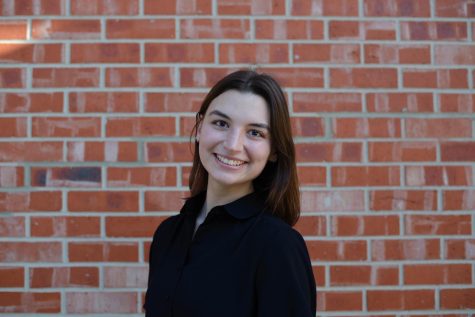
My name is Ashley Allen and I am a senior completing a BA in art history at Trinity University, with a minor in Medieval and renaissance Studies. I hope...

